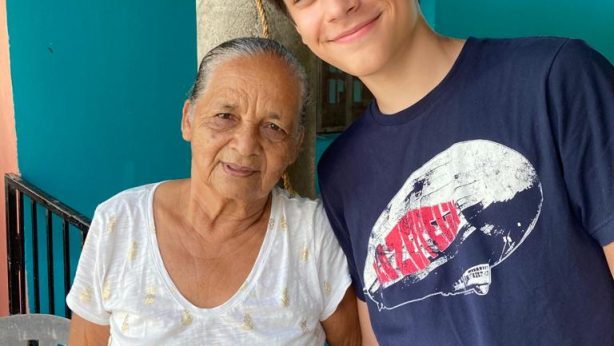Not All Flee for Fear
While capturing some of the most perilous quarters of San Pedro Sula, photojournalist Ross McDonnell covers chilling realities afflicting many inner-city dwelling Hondurans. In Honduras, such ghastly scenes of street violence and busloads of traumatized migrants flood our screens and news sources on a daily basis. The world has witnessed that this insecurity is dire, and a key reason for the US to consider a refugee pilot program to selected Honduran migrants.
Yet, not all Hondurans flee for fear.
The increasing figures of migrants do not solely reflect individuals avoiding gang involvement or abuse. The news has vastly ignored the fact that numerous individuals are making the trek to the US for economic and social reasons. For many, the driving force behind migration is not insecurity, but the opportunity to send money back to their poverty-stricken communities. This population contributes significantly to the heightened numbers of migrants so widely discussed as the current migration crisis.
The melting pot nation has nowbecome home to many Hondurans seeking more prosperous livelihoods. They have set the trail for thousands of fellow migrants.Of course the migrants risk an often perilous journey, but many underemployed workers consider to be fulfilling a responsibility to support their families from the north. Once they reach their destination, many Hondurans find that life does not fit the romantic vision they imagined. Many end up in hard toiling field work or construction jobs, and are constantly wary for fear of deportation or even incarceration. Still, the powerful American dream continues to entice Hondurans to make the journey.
With many Hondurans dispersed throughout the US and other areas, they are looking more and more to send for their loved ones. Naturally, parents yearn to be able to reunite with their children. People will do anything they can to embrace their families again. The recent surge stems not only from the rising violence, but also out of the desire that so many have to reunite with their loved ones.
Close to a fifth of Honduras’ GDP is comprised of remittances from the US, notes a profile on the nation from the Migration Policy Institute (MPI). Rather than focus on economic inequality and supporting development in rural areas, Honduran officials have pushed for industrialization and urban growth. This piece from MPI also touches upon the migration within the country to San Pedro Sula, Tegucigalpa, and other urban hubs. Such mass migration to these areas has resulted in over-competition, which has in turn led to systemic unemployment, inequality, and social disorder. While migration from Honduras is not a new phenomenon, the increasing social and economic challenges within the country have led to continued dependence on outside support.
Migration is currently viewed as a solution to economic hardships back home, but it is an unsustainable and risky short-term fix. To foster long-term development, it is crucial to prevent the exodus of Honduran workers overseas by stimulating economic opportunities back home. Adelante works towards sustainable development in areas home to the poorest of the poor of Honduran society. By focusing on the roots of poverty and looking for long term solutions, our hope is to encourage Hondurans to flourish here in their own communities, rather than relocating abroad (and away from their families) to improve their quality of life.


